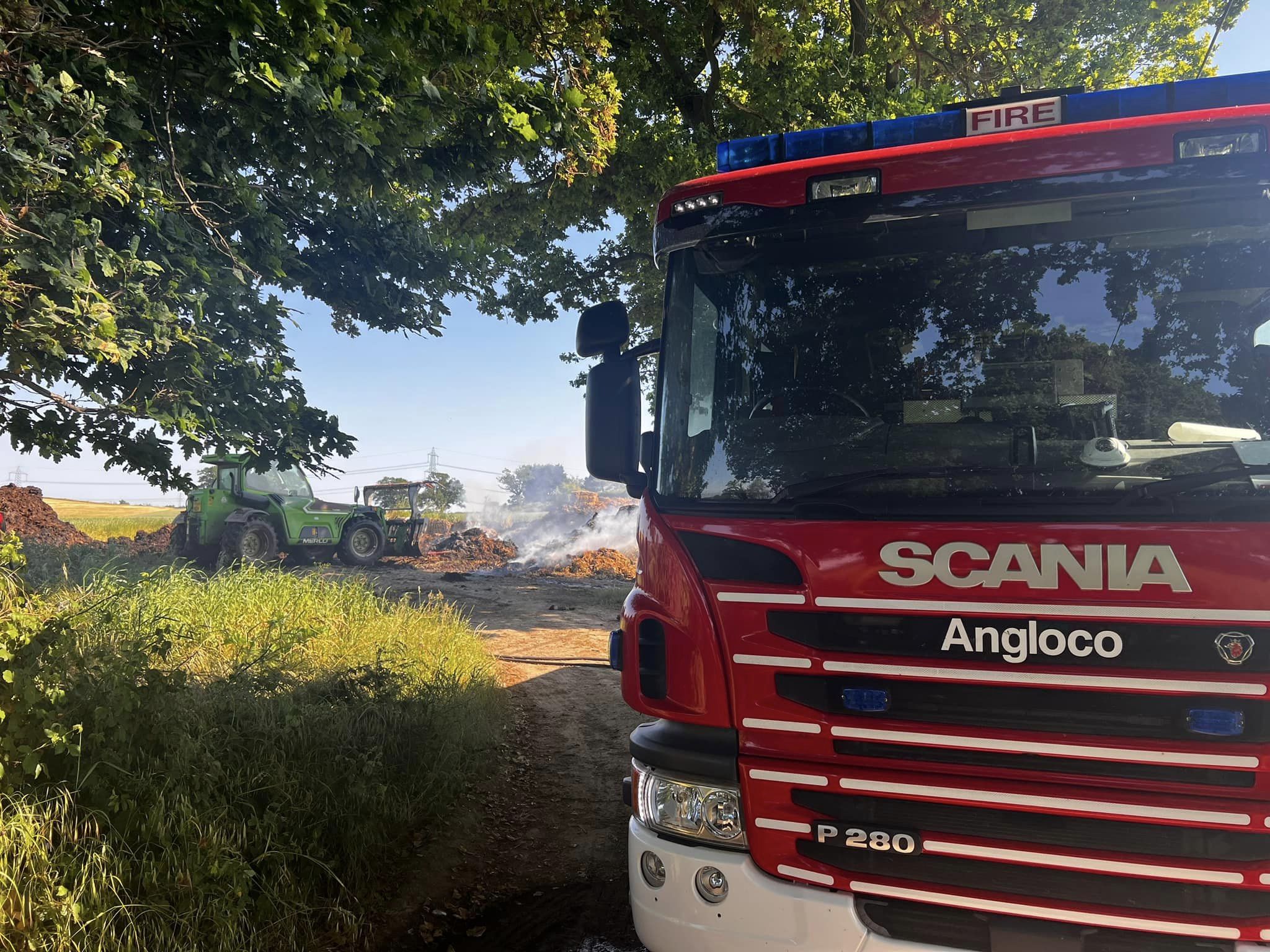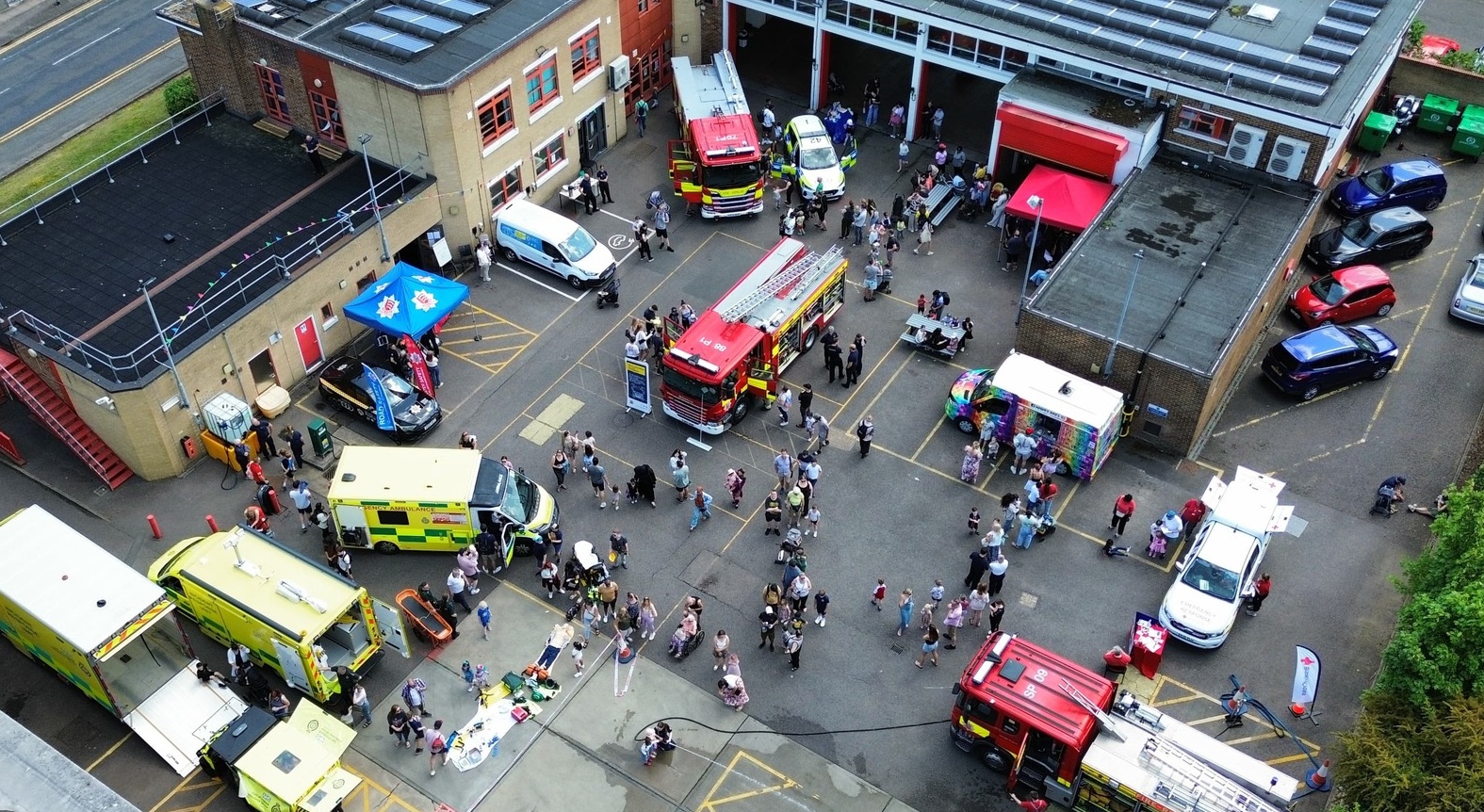
Fire safety advice for farms
Who is responsible for fire safety on a farm?
Fire safety legislation applies to all farm buildings where people work. The farm owner or manager is usually the 'Responsible Person' who has the duty to ensure adequate fire safety provisions are in place. Failure to comply with fire safety laws may lead to prosecution.
A fire safety risk assessment must be carried out. This will help you identify the risks that can be removed or reduced, and help you to decide the nature and extent of the fire precautions you need to take.
What to do in the event of a fire
Get to a safe place away from the fire and call 999 with the following details:
- Full location – ordnance survey grid reference or What3words location if possible
- What is involved or likely to become involved in the fire i.e. chemicals, hay etc.
- Information about access to the fire for fire engines
- If there will be problems accessing water supplies
Stay away from the fire and make yourself known to the fire crew when they arrive.
Then, when everyone is safe:
- prepare to evacuate livestock should the fire spread
- prepare to use farm machinery to assist the fire and rescue service to move straw/hay etc.
Living on farms
Fires on farms can also affect the farmhouses and other domestic properties, they can start in any room and the effects can be devastating. Knowing how to reduce the risk of fire in the home can help to keep everyone safe and stop fires spreading to the business side of the farm.
- Make sure every property has a smoke alarm on every floor of the home
- Smoke alarms save lives, but only if they are working, test smoke alarms regularly
- Don’t charge items such as mobile phones, tablets or e-cigarettes overnight
- Have an escape plan and make sure everyone knows how to get out in the event of a fire
Don't forget we offer free home visits to anyone living in Essex. If you do not have working smoke alarms or have working smoke alarms but would like more information about how to live safely and securely in the home call 0300 303 0088 or visit www.essex-fire.gov.uk/book.
How to prepare your farm
- Keep escape routes clear at all times and keep all areas free from rubbish, oily cloths and other combustible materials
- Make sure everyone at the farm knows what to do in the event of a fire. Carry a mobile phone at all times, especially if working alone
- Keep firefighting equipment in good working order and ensure it is serviced regularly. Make sure it is always easily accessible and that everyone is aware of where it is located
- Make sure that the entrance to your farm is clearly signposted and keep all access routes clear for emergency vehicles
- Download a location app such as What3words app or Ordnance Survey Locate to give a specific location to the emergency services
- Make sure you have an animal evacuation plan for your livestock in the event of a fire
- Do not store flammable items near livestock
Preventing arson at your farm
Many farm fires are caused by arson. There are precautions you can take to reduce the risk of these attacks.
Security
- Lock sheds and buildings
- Keep fuels, chemicals, pesticides and fertilisers locked away
- Repair or replace damaged fencing and gates
- Display security notices and use security alarms and lighting
- Use dogs or geese to give early warning of intruders
Storage
Hay and straw should be removed from fields as soon as possible after harvesting.
Hay and straw should be stored:
- away from other buildings, particularly those housing fuels, agrochemicals and machinery
- in stacks of reasonable size, spaced at least 10 metres apart
- separate from livestock housing
Rubbish should be disposed of safely and on a regular basis.


